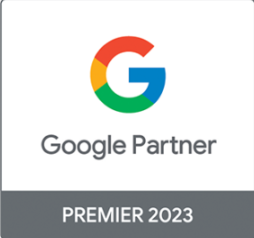There’s a global frenzy surrounding Artificial Intelligence. How real is the threat that Digital Marketeers are soon to be replaced by AI?
The 4th industrial revolution has been discussed widely over recent months and there’s real tangible fear that jobs will be replaced by AI and in large volumes.
Marketing is becoming more personalised in the pursuit of true one-to-one messaging. This is creating a huge volume of data and greater complexity. And frankly humans cannot scale to manage this all manually.
IBM, as one example, are taking this automation in marketing, very seriously with their Watson Marketing solutions.
But how does this all really impact the South African digital performance industry?
Let’s take a quick look at a few of the key digital marketing disciplines:
Social Media
The main work involved in producing social media marketing comes in the form of content creation & community engagement.
Community engagement is capable of being automated by bots today and there’s more brands adopting such technology. And be in no-doubt these bots are getting very good at this job. The biggest fear of adoption is the risk and control factor “what happens if the bot says the wrong thing”. Ironically the risk factor with humans is equal, if not higher.
Content creation is also possible via AI, with songs and films being produced entirely by AI. That said, crafting a message and a compelling story, around a brands nuances and getting the right tone of voice, is still very hard for humans, not least because it’s subjective and emotional.
The reality is that community mangers will be a thing of the past in the very near future. But the art and craft of “social marketing” is safe from the robots for a little while longer. In fact, the human layer of emotion and subjectivity will not be replaced any time soon. “Phew” say all the creatives.
Paid Media
Paid media automation is also now quite advanced. The number of platforms and ad types makes it hard for one single platform to integrate with everything else. So, at present, no automation system covers everything. It is because of this diversity of platforms, that the big players are likely to dominate this space. From Google, Adobe and IBM and not forgetting the major agency networks that are already way down the road of building their own programmatic platforms.
The main discipline of paid media is mostly about being organised and process driven. Successful paid media practioners, normally work long hours, because there’s lots of admin and the bringing of data into one place, to help make sense of “what is going on”. We sometimes compare paid media to city trading, it’s the sharp end, where you can make mistakes with real money. It’s this logical aspect to paid media that makes it perfect for being replaced, or complimented by machine learning.
Luckily for paid media folk, the complexity of the platforms and channels will keep you safe for a little while longer. But there is no doubt that the automation of this job function, is happening now. Fear not, this offers a great opportunity to move into the more enjoyable space of planning and strategy – which can only be a good thing.
Reporting & Insights
Now this aspect of automation is happening fast. Many agencies and digital marketeers still spend hours, taking data from one source – putting it into Excel (manually) – then adding the right formatting and logos. And then actually bash out very poor reports. Why are they poor? Because 90% of the effort is “data pulling” and not data pattern analysis and recommendations.
There’s some great data synchronisation and visualisation platforms available to agencies, both small and enterprise level. They are available now and they really are decent. The most recent arrival is Google Data Studio – which is free and pretty much connects with any common or bespoke data source. The user experience is really slick and makes automation possible for the non-technical, but tech curious marketer.
Agency Self Protection
Many agencies are reluctant to invest in technology and perhaps largely because it could remove some of their service lines. I guess it’s a case of protecting your own lunch. This might make sense in the short-term, where you are chasing every drop of revenue, in a difficult market, but in the long term it’s operational suicide.
There no doubt that (AI) and machine learning is needed to help marketeers cope with the diversity of data and proliferation of platforms. So rather adopt, than fall into fear or short term self-protection.
“Generalist Specialist” + Automation
The winners will be those that embrace software and automation in all forms. But critically those who combine specialist (who understand the commercial aspects of digital from paid, seo, social & analytics) to provide meaningful strategic direction.
This should be a case of what is the “machine telling us” rather than “we are all doomed, the robots are coming”.
So, the next time a junior comes to you and says, can we invest in this software, it costs just USD40 per month, don’t just deny it due to fear of extra expense, ask what can it do for your business and test it out. If it does not work embrace another piece of software, and before long you will find the winning formula of tech and humans.
Of all the industry types who should fear automation, marketing is quite far down the list. Why, because good marketing is emotional, subjective AND turbo boosted by the use of good tech.
Fear not and embrace tech now, do not wait until you are too far behind the curve.
[thrive_leads id=’1409′]



